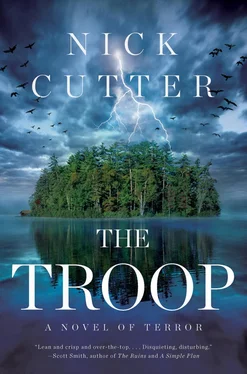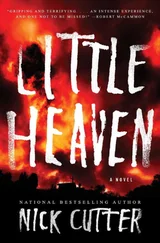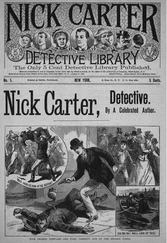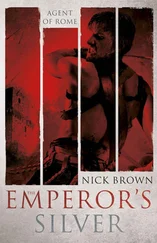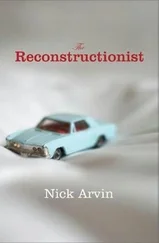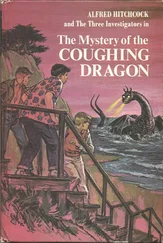Q: Define for our purposes “men like you,” Admiral.
A: I’m talking about men who take a line and hold to it. Some people think that makes men like me inflexible. Hard-assed. At worst, inhuman. It’s true that the decisions men like me make can seem, from an outward perspective, to be that: inhuman . People will always second-guess you. Why did those people have to die? Why those forty-four in the SARS outbreak? Why those kids on the island? Well, that’s fine and I accept all that—the second-guessing, I mean, not the fact that every epidemic is going to have its fair share of deaths. It’s my hope and goal to have zero fatalities. But the fact is that unless men like me make those decisions, the questions asked in the aftermath might be a whole lot different. Instead of why did those forty-four have to die, it’s why did five million have to die? Why did the whole eastern seaboard have to die? At that point, nobody has the luxury of a tribunal. At that point, everyone’s just trying like hell not to get sick.
Q: So you’re saying—
A: I’m saying that the decisive actions of men like me make second-guessing possible. We’re the first-guessers. And sometimes that’s all it is: educated guesswork. We don’t know how bad it might get. We assess the risk, gauge what the collateral damage might be, try to minimize it, and then hold that course. I’m not saying it doesn’t make for some uneasy nights. But it’s what you have to do.
Q: Admiral, I’d like to change course.
A: It’s your circus. You can call the tune.
Q: Wonderful. Admiral, did you know about Dr. Clive Edgerton and his experiments with the modified hydatid worm?
A: Before all this? No.
Q: Remind me: You did sit on the panel of the Board of Safety in the Fields of Communicable Diseases and Epidemiology, did you not?
A: I have, as I’m required to by duty.
Q: So then I find it odd that…
A: Yes?
Q: I find it odd you’d have no knowledge of Dr. Edgerton. I say so because the board—the board you sit on—is very aware of Dr. Edgerton. Two years ago, his name was brought up in conjunction with several other doctors. According to the board, the work of those doctors should be subject to a higher degree of oversight and scrutiny, seeing as their research could pose a significant risk.
A: I don’t go to every meeting.
Q: But they send you the minutes?
A: Yes. I read them as thoroughly as I can, but my schedule is busy.
Q: Admiral, what are your thoughts on the effectiveness of the mutated hydatid as it applies to warfare?
A: I think it’s monstrous. It’s a monstrous question.
Q: Yes, I’m afraid it is, but such questions need to be posed. You say it’s monstrous.
A: I do indeed.
Q: That’s not the question I asked you.
A: I suppose it would be effective as a weapon. In certain, very prescribed situations.
Q: Like on an island?
A: What’s your name?
Q: [name redacted]
A: Well, [name redacted], if you are suggesting that I dragged my feet and somehow used those kids as—as what? Test subjects? If you’re suggesting that—
Q: Admiral, does the name Claude Lafleur ring a bell?
A: No. Why should it?
Q: Master Seaman Claude Lafleur was one of your men.
A: The entire navy is my men.
Q: Master Seaman Claude Lafleur was stationed at the same base you operated out of. Lafleur’s daughter often babysat your children. You’re saying you don’t know Claude Lafleur?
A: That’s right.
Q: Claude Lafleur was a locksmith before entering the navy.
A: You want to hurry this up?
Q: As you already noted, this is my circus, Admiral. I’ll choose the pace. Some time ago, Claude Lafleur was given a four-day executive leave. That leave started the day before Tom Padgett escaped from Dr. Edgerton’s facility.
A: Yes? So?
Q: Are you aware that you signed Claude Lafleur’s leave papers, Admiral?
A: I sign plenty of leave papers. I spend half the day signing papers.
Q: Are you aware, Admiral, that Claude Lafleur’s fingerprints were found on the rear access door of Dr. Edgerton’s lab?
A: You’ll have to speak to someone else about that.
Q: Are you aware that we presently have Claude Lafleur in custody? Are you also aware that Lafleur has some fairly damning things to say?
A: You’ll have to talk to my superiors about that.
Q: Admiral, who are your superiors?
A: [Witness maintains silence]
Q: Are you saying that even admirals take orders from someone?
A: [Witness maintains silence]
Q: Admiral, just earlier you used a term I’d like to revisit. Monstrous . Perhaps you’d agree, Admiral Brewer, that purposefully releasing a contagion would be monstrous ? And if Tom Padgett were that contagion, Admiral, then wouldn’t it stand to reason that Falstaff Island could be seen as no less than a giant petri dish, and the events that occurred there no less than an unsanctioned experiment—on children?
A: [Witness maintains silence]
Q: Wouldn’t that just be absolutely monstrous , Admiral? Wouldn’t that be the most inhuman thing you could ever imagine?
A: [Witness maintains silence]

45
NIGHTFALL GREETEDthe boys as they stumbled out of the cavern. In the silvery fall of moonlight, Newton saw that he was soaked in gore from the waist down. Revulsion swept over him in a dizzying wave.
When Max approached with a handful of leaves—all he could find for Newton to clean himself off—Newton held his hand out.
“Don’t come near. It’s too late—they’re all over me.”
He could feel them inside his pants, prickling his skin with strange heat. They wriggled in the hairs he’d just started to grow down there.
Max said: “What can we do?”
“Get back to camp. I’ll wash up in the ocean. See if that helps.”
THEY MOVEDthrough the woods without a flashlight. Chilling noises emanated from the lacework of tall trees: hoots and scufflings and a frenzied cackle that rose up and up until it dropped to an ongoing buzz like an enormous hummingbird trapped in a rain barrel. Whatever was making those sounds couldn’t possibly be any worse than the Shelley-thing back in the cavern.
When they got back, Max made a fire using shingles that had blown off the cabin roof. Newton went down to the water to wash. Max could just make him out past the moon-glossed shore. He sat cross-legged in the surf, scrubbing and scrubbing. He returned in only his underwear, which sagged wetly around his hips. There was a defeated hunch to his shoulders that freaked Max out.
“I’m hungry, Max.”
“I’m hungry, too, Newt.”
“I think I’m hungrier than you.”
SOMEHOW, THEYslept. In the witching hours, Newton sat bolt upright. His insides were alive and seething. He bit down on his lip until blood came.
An hour later, Max awoke as Newton puked into a thicket of poison sumac. He was curled up on his side, breathing in rapid little bursts.
“I took the mushrooms,” he said. “They do the trick.”
Newton pointed at the puddle of vomit. Nothing but a thin smear of liquid tinged purple from the berries they’d eaten. It was alive with wriggling whiteness.
Читать дальше
